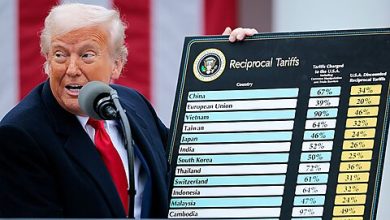Pro-Brazilian Censors Strike Back: Digital Sovereignty Versus Free Speech Online

An open letter titled “Against Big Tech’s Attack on Digital Sovereignties” was published last week by a group of significant academics and activists who support the ongoing crackdown on X and dissident speech by Brazilian authorities. The signatories include Thomas Piketty of the Paris School of Economics, MIT’s Daron Acemoglu, and other scholars from prestigious institutions such as UC Berkley, the London School of Economics, Stanford, and more.
The letter represents a stark rejection of the liberal norms and technological advancements that have allowed modern societies to thrive. Instead, it proposes a dystopian future not only for Brazil but for the world, in which free expression is at the will of the government and technology serves the state rather than the individual. And it is frightening to see growing support for this censorial vision by so many elites within our society.
This letter should be a wake-up call to those who think that rising censorship in Brazil and elsewhere can’t happen here in the United States. It’s worth taking a closer look at this letter to see why it demands a cultural return to free expression and liberal values.
The letter begins by launching broadsides against the “ongoing attacks by Big Tech companies and their allies against Brazil’s digital sovereignty” or their effort to “define a digital development agenda free from the control of mega-corporations based in the United States.” The letter attacks X for “failing to comply with court decisions that required the suspension of accounts that instigated right-wing extremists.”
This account of what is happening in Brazil is wildly inaccurate and obscures the tyranny growing in South America. Nowhere does the letter question where or how the Brazilian judiciary seized the power to silence non-violent speech in Brazil unilaterally, secretly, without any due process, and without providing any legal justification for their action. The letter fails to mention how elected members of Congress and former President Bolsonaro himself were regularly targeted, investigated, and silenced. Even before Elon Musk took over Twitter, Twitter’s local teams saw the first waves of these demands as “mass and indiscriminate disclosure of private users data,” a “fishing expedition,” and a violation of privacy and other constitutional rights.
The letter overlooks how Brazil’s significant legal protections for platforms and online speech have not been repealed by Brazil’s legislature, but are effectively ignored by the courts, especially one runaway Justice Alexandre de Moraes. Criticism of judicial overreach itself becomes grounds for further suppression, with the judiciary empowered to act as victim, police, investigator, prosecutor, judge, and jury. Similarly, the judiciary has worked with the Lula administration to open criminal investigations into companies that criticized the administration’s proposed misinformation legislation.
The letter also doesn’t mention the jailing of dissidents without trial for criticism of Brazilian institutions or raiding the homes of eight prominent businessmen because two of the businessmen said a dictatorship would be preferable to Lula becoming president in a leaked private What’s App chat. Also, the letter takes no issue with how the Brazilian judiciary can create out of nowhere a massive penalty equal to a Brazilian’s average yearly wage for anyone using a VPN to access X after it was blocked, punishing Brazilians for the sin of posting online.
The open letter conveniently ignores these accounts of growing authoritarianism by the Brazilian government, brushing off concerns as the fever dream of the right wing and Elon Musk. Yes, most of those opposed to this are on the political right because they are largely the ones being investigated, imprisoned, or silenced. However, Moraes also banned a Brazilian communist party on social media for calling him a “skinhead in a toga” and arguing the Supreme Court should be dissolved.
Yes, Musk has not always been a consistent defender of free expression, but neither have any other major platforms. And yes, those who actually commit and directly incite violence should be punished. But many observers on all sides of the political aisle are realizing that Brazil’s current censorship frenzy goes well beyond the realm of punishing crimes. It is punishing thought crimes.
Not surprisingly, the letter says that what we need around the world is to reinforce the “public sector’s ability to create and maintain an independent digital agenda based on local values, needs, and aspirations” and “for states to direct technologies by putting people and the planet ahead of private profits or unilateral state control,” i.e. by the US.
This concept of “digital sovereignty” puts the state in control of the future of online speech and is commonly used by Russia and China to advance their digital authoritarianism online. Brazil, the letter argues, is just doing what is best for its local values, needs, and aspirations. Rather than empowering users to connect, speak, innovate, disrupt, and organize, technology must serve the state’s interests, not just in Brazil but in the US too.
In place of a freer and more connected world, the signatories advocate for Brazil, the US, and all nations to build digital walls that, like the physical walls of the Soviet Union or China’s Great Firewall, are designed not to protect their people but to control them.
The letter cleverly disguises its attacks as being on the much-maligned “Big Tech” companies. It’s true tech companies aren’t always principled, especially as they face a growing conflict between doing business in many countries and the increasing government demands to censor content worldwide. But the correct response of those who love liberty is not, as the letter recommends, to call for democracies to follow this same path as these authoritarian regimes to silence their citizens and control speech. Instead, it is to condemn authoritarian and illiberal regimes and their assaults on individual freedom and promote the value of free expression and decentralized censorship-resistant technologies.
Ultimately, the target of the letter isn’t Big Tech at all. The letter is aimed at our liberal system of values and the speech such a system has unleashed. Any company or technology that advances freedom and innovation untethered from the bidding of the government poses a threat to the authoritarian dreams of digital control.
The “digital agenda” and “sovereignty” the letter defends could be straight out of 1984, Fahrenheit 451, or any other totalitarian fantasy. But that doesn’t bother the signatories of this letter. The letter says all “who defend democratic values must support Brazil … and governments around the world should support these efforts.” Democratic values don’t include allowing judges to seize unbound power to suppress their political opponents for non-violent speech with little to no due process in the interest of advancing broad state control over online speech.
While protecting democracy from the evil mega-corporations is a nice rhetorical spin, the letter barely veils its contempt for free expression and liberal values. It’s deeply disquieting to see so many academics praise and justify such a nakedly authoritarian power grab.
Many of these academics live in societies and work in universities founded on liberal principles of due process, individual liberty, and open debate. Censors in Brazil and elsewhere are growing in their boldness because we live in a time when it is increasingly acceptable or even praiseworthy to favor suppression and intolerance toward liberal ideas.
Given that this support for censorship extends to the heart of our elite institutions, we cannot sit idly by and rely on First Amendment jurisprudence to protect us. Judge Learned Hand famously said, “Liberty lies in the hearts of men and women; when it dies there, no constitution, no law, no court can even do much to help it.”
We must commit ourselves to not only the legal defense of free expression but also boldly support a culture of free speech that rejects the digital authoritarianism of our would-be censors.
Whatever lofty goal these censors may seek, we cannot suppress our way to liberty, nor can government control achieve individual freedom.





